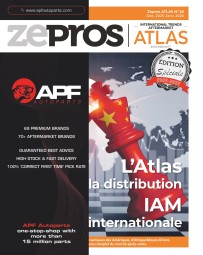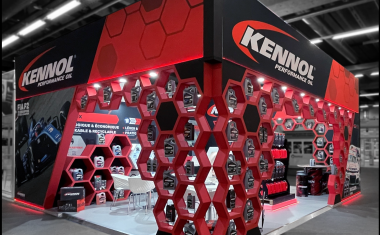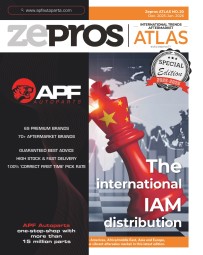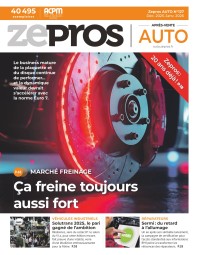
C. Socheleau, Accor Lubrifiants: " ’Made in France’ is a great selling point for export"

Claire Socheleau, export manager for the lubricant specialist, explains to us how the manufacturing of Accor Lubricants products (Kennol brand) in France is a strong argument for export... provided also that you have the agility to adapt its offering to different global markets.
With your products, lubricants, and technical liquids manufactured in France, in Cholet, ’Made in France’ is the hallmark of the Accor group. Is this a selling point abroad?
Claire Socheleau: It’s a significant advantage in the highly competitive lubricant market. We prominently feature it on our labelling and in our sales presentations. Our international prospects highly value the fact that we are a manufacturer, especially with production in France. This provides reassurance to them amidst a plethora of products originating from the Middle East where quality and origin are difficult to verify. It serves as a compelling communication tool as the ’Made in France’ emblem consistently conveys a quality image. To the extent that some of our competitors in Dubai [Editor’s note: local oil companies are very active in the low-cost lubricants market] promoted the ’French technology’ quality of their products at the recent Automechanika Dubai. The image of French expertise is indeed well-received and effectively exported.
But ’Made in France’ is also synonymous with premium prices. How do you manage to position yourself in low-cost ’hunter’ markets, such as Africa?
C.S.: We have adapted to this type of market. In Cholet, we introduced ’mineral’ products using old technologies that were no longer part of the range but remain effective. These costcutting products enable us to meet the older specifications of the African fleet. Marketed under the Kennol brand, these products are nearly half the price compared to our recent technologies. So, aside from the Maghreb, our premium offering remains a niche in this continent.
What are the most promising markets for your group?
C.S.: Exports make up around 50% of the 130,000 tonnes produced annually. We enter new markets every year and currently sell in 77 countries across all continents. Our penetration into different markets depends on the ’Kennol spirit’ from our distributor-importers. It’s crucial to identify the right individual who is seeking a high-end French brand to become its ambassador in their market. For instance, our Moroccan importer has hired an employee dedicated to our brand, naturally boosting sales. In Asia, we have achieved substantial volumes in Hong Kong. Japan is also a vibrant market, and in Asia, we have been present for ten years in China, as well as in Taiwan and South Korea. Surprisingly, for Europe, our biggest country is currently Ukraine, which, after significantly slowing down its activity at the start of the conflict, is now experiencing a resurgence.
What will 2023 end up looking like for the global lubricant market?
C.S.: This year, we expanded into new countries, including Cyprus, Estonia, Sweden, Greece, Guinea, and Comoros. It’s worth recalling that 2022 was very challenging due to historic inflation in raw materials, resulting in shortages. We even faced a situation where our price list had validity periods not excee- ding two weeks! Consequently, until the beginning of 2023, our customers, lacking visibility, remained very cautious. From June onwards, the market stabilised, and everyone resumed growth. However, we remain cautious as we are still experiencing inflation of around 2 to 3%. Additionally, for exports, geopolitical instability has a significant impact. Ultimately, for 2024, I hope that we will see the flow of business in China that we experienced before the pandemic crisis.
Retrouvez la version en Français : C. Socheleau, Accor Lubrifiants : «Le “Made in France” est un bel argument de vente à l’export»










